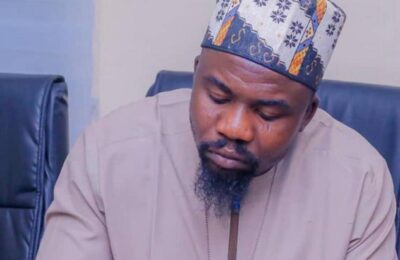In Nigeria, paradoxes parade as norms, and none is more disconcerting than the plight of the educated poor. They are the nation’s intellectual class—armed with degrees, diplomas, and scholarly distinctions—yet shackled by poverty, underemployment, and societal disregard. This systemic anomaly presents an existential crisis, one that has devalued academic labour and made mockery of enlightenment.
Statistical truths only scrape the surface. The National Bureau of Statistics reports that over 40% of university graduates are unemployed or underemployed. Beyond the numbers lies a haunting narrative: scholars reduced to beggars, thinkers stranded in cycles of futility. Nigeria’s brightest minds, rather than illuminating pathways of innovation and development, are often extinguished by economic suppression and institutional neglect.
In classrooms, behind desks that wobble on broken legs, some of the country’s most committed intellectuals teach with passion but survive with borrowed food and deferred dignity. The irony is piercing—those entrusted with nurturing the minds of future leaders cannot afford to lead lives of stability themselves.
I recall my own tenure in a private school. Driven by purpose, I taught with zeal. Yet, it was not uncommon for parents—and sometimes students themselves—to approach me, their voices a blend of concern and condescension: “Sir, quit this job and look for something better. Farming is even better than this teaching.” A teenager, in uniform, urging his teacher to abandon pedagogy for agriculture—this is not satire, but reality. It lays bare how far formal education has fallen in esteem.
In Nigeria’s rural heartlands, those who never embraced formal education are often the ones who now lead modest but financially stable lives. They till the soil, tend their farms, and sell produce at profit. They speak with derision of the educated: “People of big books and big grammars but empty pockets.” Their laughter is not just scorn—it is vindication. In a twisted turn, intellect has become synonymous with insolvency.
The most ironic victims are the educators—those who chose to disseminate knowledge for the good of posterity. They are often paid paltry sums that cannot sustain a family, let alone fuel ambition. Masters degree holders living in penury, buying rice on credit, and stretching every naira. Philosopher George Santayana would find grim affirmation here: “A country that dishonours its teachers prepares for a future of ignorance.”
This degradation of scholarship is symptomatic of larger structural rot. Nepotism supplants merit, tribalism thwarts fairness, and corruption erodes opportunity. Thomas Sowell once observed, “It takes considerable knowledge just to realize the extent of your own ignorance.” In Nigeria, it takes considerable knowledge just to remain sane.
Even more alarming is the cultural inversion of values. Teenagers now equate academic excellence with economic paralysis. Graduates drive taxis, serve as security guards, or emigrate to toil in foreign lands. The Nigerian diaspora, flush with educated exiles, grows daily. The World Bank identifies Nigeria as a global leader in brain drain—a hemorrhaging of potential.
Yet, those in villages who rejected Western education now trade laughter for livestock. They build homes, marry early, and raise children while graduates write applications that go unread. The farmer tills with dignity, while the scholar begs with shame.
This is no isolated affliction. Families invest fortunes in education—often incurring debt—to see their children through university. When those investments yield nothing but joblessness, bitterness festers. The result is intergenerational despair. The educated poor become symbols of failed dreams.
Karl Marx warned that philosophers had only interpreted the world; the point, he said, was to change it. But how can change come when intellectual capital is squandered? Nigeria’s refusal to prioritize innovation, research, and knowledge production ensures the continuity of mediocrity.
According to Isah, “a farmer in the village earns more than a science teacher in the city. A fashion apprentice accumulates wealth faster than a first-class engineering graduate.” This is a complete inversion of values. Merit is irrelevant; muscle and money dominate.
Albert Einstein said, “We cannot solve our problems with the same thinking we used when we created them.” Yet Nigeria recycles the same political actors and failed ideas. Governance does not reward intellect. Institutions do not promote critical thinking. Instead, what thrives is loud mediocrity and credentialed poverty.
The consequences of this intellectual drought are dire. Nations rise on the wings of their thinkers. Ideas spark revolutions. But in Nigeria, ideas die in the minds of the hungry. A generation that cannot afford to think cannot afford to thrive.
Chinua Achebe’s lament rings truer than ever: “The trouble with Nigeria is simply and squarely a failure of leadership.” But it is also a failure of imagination, of vision, of valuing brains over brawn.
Educated Nigerians do not ask for pity; they ask for purpose. They seek systems that recognize intellect not as ornamentation but as foundation. They want a country that builds with its brains, not just its bricks.
Until Nigeria reconfigures its values—until it restores dignity to scholarship, until it pays its teachers a living wage, funds its researchers, and empowers its thinkers—poverty will continue to drape the shoulders of its most enlightened.
This crisis of the educated poor is not coincidental. It is deliberate neglect. Every day Nigeria fails to act, it makes a damning choice: ignorance over insight, mediocrity over mastery, and regress over renaissance.
– Inah Boniface Ocholi writes from Ayah – Igalamela/Odolu LGA, Kogi state.
+2348152094428 (Whatsapp Only)




